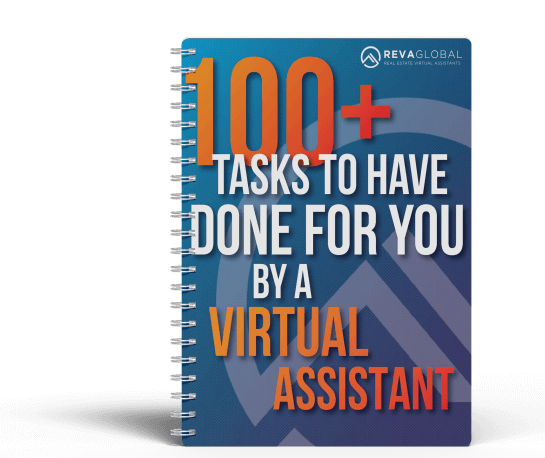The Hidden Demands: Why a Career in Real Estate Isn’t as Flexible as It Seems

A career in real estate is often marketed as a dream job—unlimited earning potential, the freedom to create your own schedule, and the thrill of helping people find their perfect home or investment.
While these benefits do exist, they mask the hidden demands that make real estate a high-pressure and time-consuming profession.
Many realtors and investors enter the industry expecting flexibility, only to find themselves working long hours, navigating complex transactions, and dealing with challenges they weren’t prepared for.
Understanding these struggles is crucial—not just for real estate professionals but also for those looking to optimize their time and reduce stress by leveraging virtual assistant services.
The Reality of Flexibility in Real Estate
While real estate professionals technically have control over their schedules, their time is often dictated by client needs, market demands, and unpredictable factors.
-
Evening and Weekend Work: Unlike a 9-to-5 job, real estate transactions don’t follow business hours. Showings, inspections, and negotiations often happen at night and on weekends when clients are available, leading to a poor work-life balance.
-
Always On-Call Mentality: Realtors don’t just work when they have appointments; they must always be available to answer calls, respond to leads, and deal with last-minute issues that arise during transactions.
-
Long Gaps Between Deals: Since real estate is commission-based, agents may work for weeks or months without closing a deal. This financial uncertainty means they must always be chasing the next lead, making it difficult to take breaks or manage personal time effectively.
The Pressure of Being Your Own Boss
Being self-employed is often seen as a perk, but it also means handling every aspect of running a business. Many realtors find themselves overwhelmed by tasks that have little to do with actual property sales.
-
Managing Lead Generation: Finding and nurturing leads takes time, and not every inquiry turns into a deal. Without a system in place, agents spend more time chasing prospects than closing sales.
-
Administrative Overload: Processing paperwork, coordinating with mortgage brokers, handling escrow, and dealing with compliance requirements can take up hours every day.
-
Marketing Responsibilities: To stay competitive, realtors must manage social media, email marketing, and online advertising—all while juggling client meetings and property showings.
Market Volatility and Financial Uncertainty
Realtors don’t receive a steady paycheck, making financial management a constant concern.
-
Market Cycles Impact Income: A slow market can mean fewer transactions and lower commissions, making financial planning stressful.
-
No Benefits or Job Security: Unlike salaried jobs, realtors don’t receive health insurance, retirement benefits, or paid time off.
-
High Out-of-Pocket Expenses: Many new realtors underestimate how much they’ll need to invest in marketing, licensing, association fees, and software tools just to stay in business.
The Overlooked Emotional Toll of Real Estate
Beyond the financial and logistical struggles, realtors face emotional challenges that are rarely discussed but significantly impact their well-being.
-
Client Dependence and Emotional Labor: Realtors work with clients during stressful life events—divorces, foreclosures, job relocations—which means they often act as therapists as well as sales professionals.
-
Dealing with Unqualified Clients: Many realtors waste hours on clients who are not serious about buying or selling, leading to frustration and burnout.
-
Competition and Industry Isolation: The pressure to outperform competitors can lead to a cutthroat work environment, making it difficult to build a support system.
Streamline your business with a Real Estate Virtual Assistant
By utilizing a Real Estate Virtual Assistants, you can free up your time and make sure that your real estate business is running smoothly.
The Role of Virtual Assistant Services in Reducing Stress
Given these challenges, more real estate professionals are turning to virtual assistant services to streamline their workload.
- Delegating Administrative Tasks: Virtual real estate assistants handle paperwork, CRM management, and email responses, freeing up valuable time.
- Managing Lead Generation and Follow-Ups: A dedicated assistant ensures no potential client slips through the cracks, increasing conversion rates.
- Marketing Support: From social media management to ad campaigns, virtual assistants help maintain a strong online presence without taking up the agent’s time.
The real estate industry is rewarding, but it’s far from the flexible, stress-free career that many imagine.
Understanding the hidden demands—from unpredictable work schedules to financial instability and emotional labor—can help professionals better prepare for success.
By leveraging real estate virtual assistants, agents and investors can reduce stress, optimize their business, and regain some of the flexibility that initially drew them to the field.
If you’re ready to scale your business, save time, and tackle the challenges of real estate not being flexible enough, schedule a strategy session today.
Let’s connect you with the ideal virtual assistant and explore our range of virtual services to set your business up for success!
Schedule Your Strategy Session!
Grow Your Brand With Trained Virtual Assistants
Get the help you need to take your brand and business to the next level.
Start Outsourcing?
Download our free guide to help you get started.

